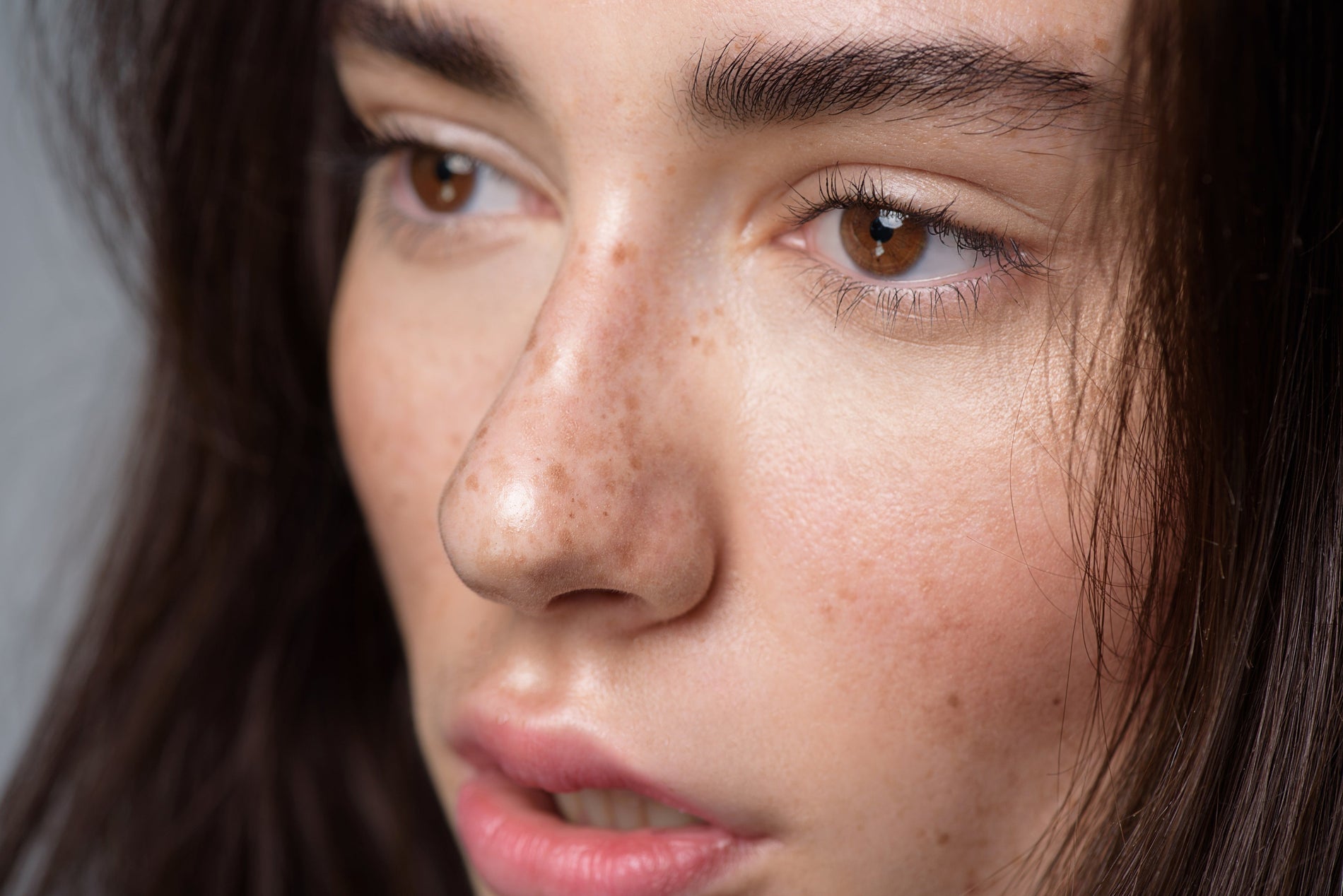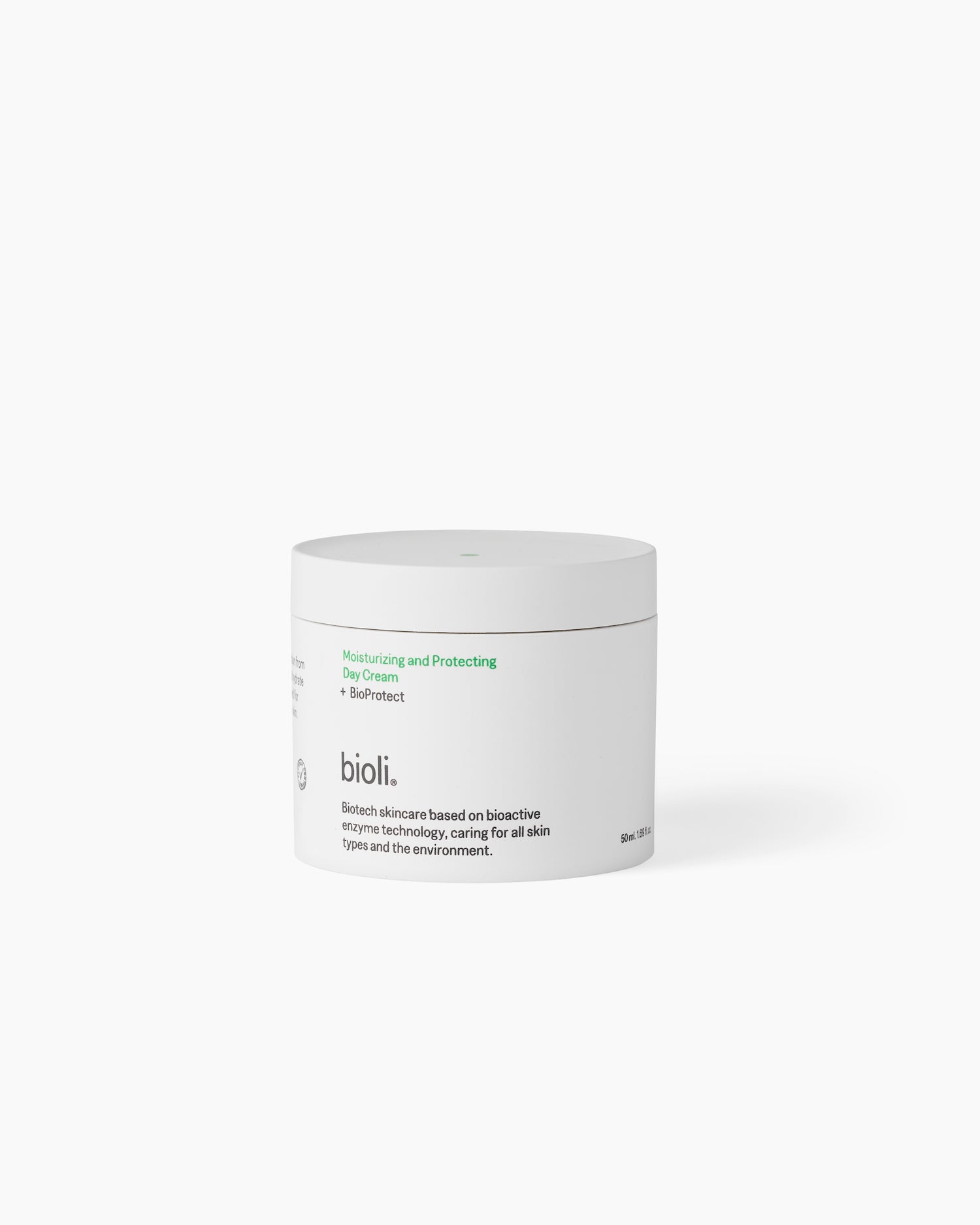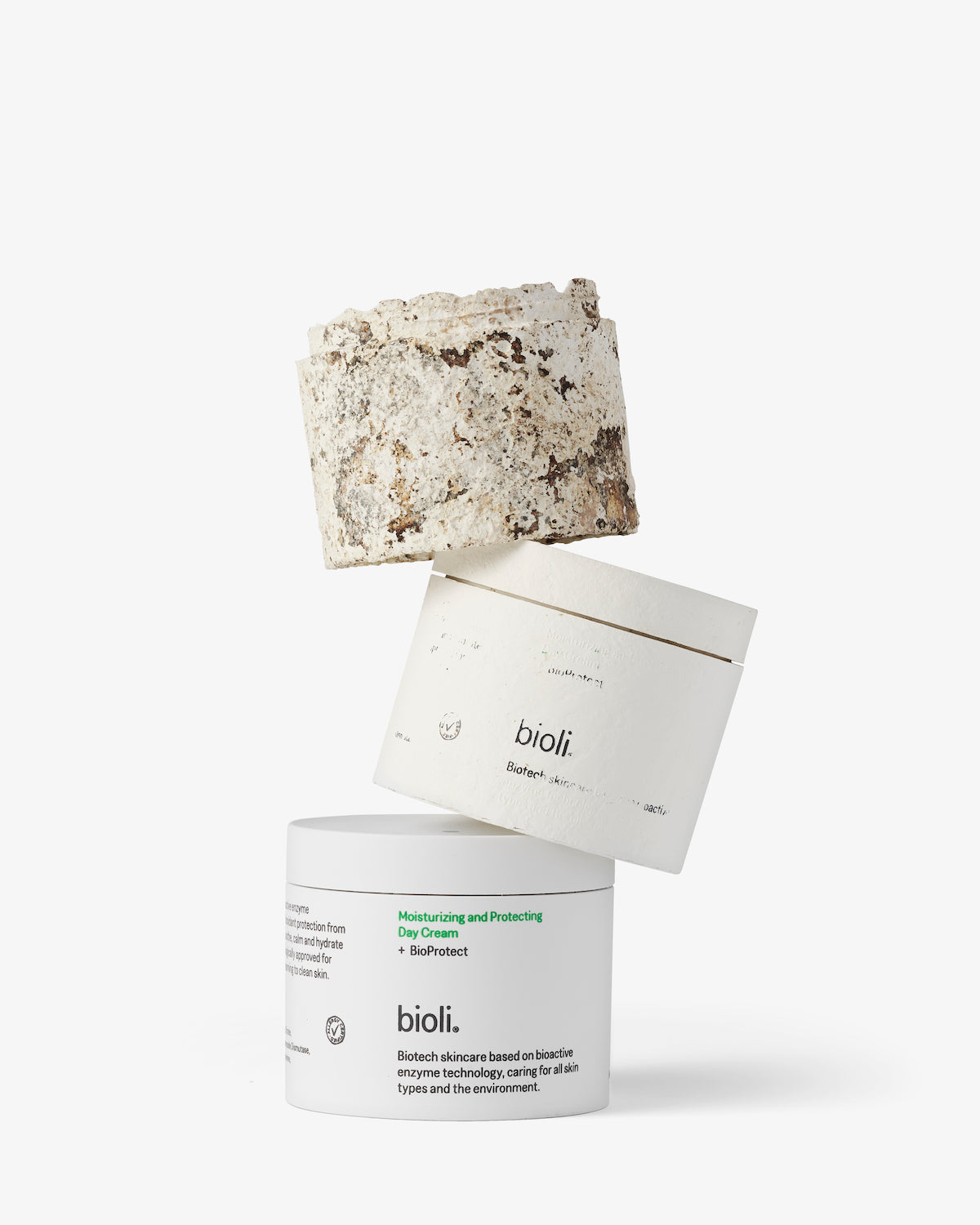What is sensitive skin
Overall, ~60–70% of women and 50–60% of men report having some degree of sensitive skin. However, there are differences between populations in various geographies, and perceptions of sensitive skin at specific anatomic sites.
It is being debated whether sensitive skin is a skin type or a skin condition. Regardless, sensitive skin is a term used to describe skin that is easily irritated by various external or internal factors, such as skincare products, environmental conditions and stress.
People with sensitive skin experience symptoms incl.
- Itching
- Redness
- Dryness
- Stinging sensations
- Burning sensations when into contact with certain substances or conditions
Types of sensitivity
There are various types of sensitivity that can affect us.
Based on extensive research, we have identified five types sensitive skin can be categorized into:
- Underlying causes: This includes eczema, rosacea, or allergies
- Naturally sensitive skin: This is due to genetic predisposition or being born with sensitive skin
- Environmentally sensitive skin: This type is triggered by environmental factors such as sun exposure, cigarette smoke, air pollution, or anything that comes into contact with the skin that may cause stinging or irritation.
- Reactive skin: This type becomes red and inflamed by skincare products, resulting in red, warm, and irritated skin. Papules or pustules may form where the irritant is placed
- Thin skin: As we age, our skin naturally becomes thinner and is easier to irritate
- Side effects: This type is a result of certain medications or medical treatments.
18% experience social phobia
Sensitive skin not only affects physical well-being but also has a profound impact on mental health and quality of life.
According to Bioli's survey carried out in 2023 with 62 respondents with sensitive skin, 18% have experienced social phobia, 9% have experienced extreme social phobia, and 14% report that their self-esteem is affected by their skin condition. This presents a challenge on both an individual and societal level.
Although the market for 'clean' skincare seems saturated, 71% of the people in the same survey report difficulty in finding products that meet their needs. This highlights the need for more products designed for sensitive skin and fewer products that include harsh ingredients. In fact, this would be beneficial for everyone, not only those with sensitive skin, as many skin disorders, when you first get them, are chronic.
In this article, we explore ‘Physcodermatology’ and the connection between skin and mind in more details, which might be interesting for you to read too.
How do you manage your sensitive skin?
Understanding your skin is key to achieving healthy skin, but it's not always easy. Let’s look at what that will irritate the skin, what is good to avoid and what you can do to get your skin in balance.
Avoid on your sensitive skin
- Fragrance
- Colorant
- Retinoids
- Exfoliants incl. glycolic and salicylic acid
- Alcohol as that will dry out your skin
- Hot water bathing
- Multiple skincare products with conflicting formulations
Start doing to balance your skin
- Take a back-to-basics approach to skincare
- Start by identifying what triggers negative reactions
- Use gentle skincare products designed for sensitive skin
- Emphasise gentle cleansing with a mild and effective cleanser that keeps the skin’s PH balance
- Use a high-quality moisturiser with few ingredients
- Finish with sun protection as the core of your routine
It’s recommended to ask your dermatologist for recommendations, and when trying new products, always patch test products on a small area of skin, such as your arm, before applying them to your face.













